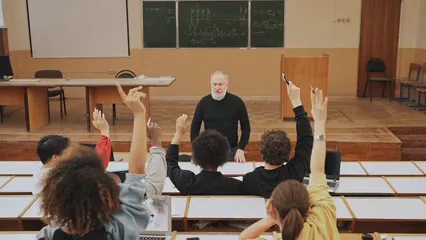
Why Have UC Hastings Ratings Dropped?
Introduction
In the fiercely competitive realm of legal education, rankings can significantly impact a school’s reputation. Recently, UC Hastings, now proudly rebranded as UC Law SF, experienced a dramatic plummet in its rankings, raising eyebrows and igniting concerns among prospective students and alumni. What led to such a steep decline? Is it an indictment of the quality of education, or does it expose flaws within the ranking systems? This article scrutinizes the factors contributing to the drop in UC Hastings’ ratings. We will investigate the implications for students, faculty, and the larger legal community. UC Law SF has a rich history, yet recent events may not tell the whole story. The ranking landscape is complex, influenced by various metrics that may not accurately reflect the school’s strengths. UC Law SF’s decision to opt out of submitting data to U.S. News highlights a growing discontent with traditional ranking methodologies. This bold move raises questions about the reliability of rankings in assessing a law school’s true merit. Prepare to uncover the truth behind the numbers. You might even discover why this once-esteemed institution could be better than its current rank suggests. With a commitment to diversity and student success, UC Law SF continues to foster a vibrant legal community. So, join us as we unravel the intricacies of law school rankings and the unique challenges facing UC Law SF today.
Summary of Key Points
– UC Hastings’ Decline: The school plummeted 22 spots to rank 82nd in the latest U.S. News & World Report, raising eyebrows and concerns. – Criticism of Ranking Methodologies: UC Hastings opted out of submitting data to U.S. News, citing flaws in the ranking system that fail to capture the school’s true strengths. – Factors at Play: The rankings are heavily influenced by employment statistics, bar passage rates, and peer assessments, but many argue these metrics do not reflect the school’s diverse mission and educational quality. – Impact of the Name Change: The transition from UC Hastings to UC Law SF may have caused confusion in public perception and assessment, affecting reputation scores. – Student Success Metrics: Despite the drop in rankings, UC Hastings boasts impressive employment rates and student achievements, indicating a strong educational foundation. Curious about the real reasons behind UC Hastings’ ratings drop? Let’s dive deeper into the intricacies of law school rankings and the unique challenges facing UC Law SF.
For those preparing for law school, having the right resources is essential. Consider picking up “The Law School Admission Game: Play Like an Expert, Score Higher, and Get In” by Ann K. Levine. It’s like having a personal coach guiding you through the application process, helping you to avoid common pitfalls that could derail your career before it even begins.
To understand the reasons behind UC Hastings’ decline in rankings, it’s essential to explore the factors at play in the legal education landscape. why have uc hastings ratings dropped

Understanding the Current Rankings Landscape
The Importance of Law School Rankings
Law school rankings are crucial. They shape a school’s reputation and influence student choices. When students research schools, rankings are often the first thing they see. High rankings can attract top applicants, while a drop can deter future students. Furthermore, rankings impact institutional funding. Schools with better rankings often receive more financial support. This support can come from alumni donations or grants. It’s a cycle: higher rankings lead to more funds, which can enhance educational offerings. Additionally, job placements hinge on rankings. Employers frequently consider rankings when hiring graduates. A school that ranks high may open doors to prestigious law firms. Conversely, a drop can limit opportunities for graduates, affecting their career paths.
If you’re looking to enhance your study experience, consider investing in noise-canceling headphones. They can help you focus by blocking out distractions, making those late-night study sessions a breeze!
Overview of U.S. News Ranking Methodology
The U.S. News ranking system is based on several weighted factors. Employment statistics hold the most weight, accounting for 33% of a school’s score. This figure is derived from the average employment rates of the last two graduating classes. First-time bar passage rates contribute 18%, while ultimate bar passage adds another 7%. Peer and lawyer assessments make up 25% of the total score. These subjective evaluations can vary significantly, introducing bias into the rankings. Standardized test scores like the LSAT contribute 5%, while undergraduate GPA accounts for 4%. Lastly, factors like student-faculty ratio and library resources round out the methodology. Critics argue that the U.S. News methodology is flawed. It often fails to capture the unique missions of law schools, such as teaching quality and public service contributions. For instance, UC Hastings noted that these rankings overlook essential elements of their educational approach. They emphasize diversity and access, yet the ranking system penalizes them for these priorities.
To strengthen your writing skills, consider “A Practical Guide to Legal Writing and Legal Method” by John C. Dernbach. It’s a fantastic resource that will help you sharpen your legal writing skills and better prepare you for law school.
UC Hastings’ Journey Through Rankings
UC Hastings, now UC Law SF, has a storied history. Once a top contender in law school rankings, it has seen a recent decline. Historically, UC Hastings ranked among the top 50 law schools. However, in the latest U.S. News rankings, it dropped a staggering 22 spots to 82nd. This drop coincided with significant changes in ranking methodologies. The new system amplified factors that may not align with UC Hastings’ strengths. The decision to opt out of submitting data to U.S. News highlights their discontent with the system. They believe it fails to accurately reflect their quality of education. Despite the dip in rankings, UC Hastings maintains a commitment to diversity and student success. Their decision to step back from U.S. News reflects a broader critique of ranking systems. It’s not just about numbers; it’s about the core mission of legal education. The challenge now lies in navigating this shifting landscape while retaining their focus on excellence.
Factors Contributing to the Decline
Institutional Decisions
Opting Out UC Hastings, now UC Law SF, made headlines by opting out of submitting data to U.S. News. This bold move reflects discontent with the ranking system. Chancellor David Faigman argued that U.S. News fails to capture the school’s true excellence. The flawed methodology emphasizes metrics that may not align with UC Law SF’s mission. By stepping back, the school aims to spotlight its strengths rather than conforming to a standardized formula. By not participating, UC Law SF has taken a stand against what they see as a one-size-fits-all approach. This decision may impact perceived prestige, but it prioritizes authenticity. The school believes that its diverse mission and commitment to social justice deserve recognition beyond mere numbers. Name Change Impact The transition from UC Hastings to UC Law SF has also influenced perceptions and rankings. This name change aims to shed historical baggage associated with Serranus Clinton Hastings. However, it may have led to confusion among peers and evaluators. Rankings often rely on reputation assessments, which can be slow to adjust. As a result, the name change may have inadvertently affected the school’s standing. The new name represents a fresh start, yet it requires time for public perception to shift. Alumni and students are eager for the change to be recognized positively in future evaluations. In the meantime, the school continues to focus on its mission of producing competent and diverse legal professionals.Changes in Student Demographics and Quality
Diversity Initiatives UC Law SF has long been committed to fostering diversity. The latest statistics reveal that over half of the incoming class identifies as people of color. This focus on inclusivity may impact traditional ranking metrics. U.S. News tends to favor schools with higher standardized test scores, which can disadvantage institutions prioritizing diverse admissions. While some critics might view this as a drawback, UC Law SF sees it as an essential strength. The school’s commitment to diversity enriches the educational environment. A varied student body enhances discussions and prepares future lawyers to serve an increasingly diverse society. This commitment, however, may challenge the school’s standing in conventional rankings. Student Success Rates Despite the drop in rankings, UC Law SF boasts impressive student success metrics. For instance, the bar passage rate stands at 72.14% for first-time takers, which is commendable. Additionally, a remarkable 92.4% of graduates find gainful employment within a year of graduation. These figures indicate a strong educational foundation, highlighting that a drop in rankings does not equate to a decline in educational quality. The school’s focus on practical experience, such as through its renowned moot court team and various legal clinics, further supports student success. UC Law SF ensures that its graduates are well-prepared for the challenges of legal practice, regardless of ranking fluctuations.
External Market Factors
Legal Job Market Trends The legal job market is notoriously volatile. Fluctuations in hiring trends can significantly impact law school rankings. Recently, the market has seen ups and downs, affecting employment rates for graduates. As firms adjust their hiring practices, schools like UC Law SF may feel the pinch. A school’s reputation can suffer if its graduates struggle to find jobs, even if the education quality remains intact. Law schools are often judged by their graduates’ employability. Therefore, any downturn in the job market can lead to a decline in rankings, even if it’s beyond the school’s control. As economic conditions fluctuate, UC Law SF must continue adapting to ensure its graduates remain competitive. Bar Exam Changes Recent changes to bar exam formats have also created ripples. The shift to a remote bar exam may affect how students perform. While this format aims to enhance accessibility, it brings new challenges. Students may experience varying levels of preparedness, depending on their study methods and resources. These changes can impact bar passage rates, which are a crucial factor in law school rankings. If students struggle with the new format, it could contribute to a decline in rankings for UC Law SF. However, the school remains committed to supporting its students through these transitions, ensuring they have the tools needed to succeed in this evolving landscape. In summary, UC Law SF faces a complex web of challenges contributing to its decline in rankings. Institutional decisions, changes in demographics, and external market factors all intertwine, creating a unique situation. The school is poised to navigate these challenges, focusing on its mission and the quality of education it provides. The path forward may be rocky, but UC Law SF continues to stand by its values and commitment to excellence.
The Broader Implications of Ranking Drops
Impact on Current Students
Job Placement Concerns A drop in rankings can be daunting for current students. When UC Hastings fell to 82nd place, it rattled job prospects. Employers often use rankings as a shortcut to gauge candidate quality. Graduates from higher-ranked schools usually have an easier time landing interviews and securing jobs. A diminished ranking can lead to fewer internship opportunities, as firms may prioritize applicants from more prestigious institutions. Students may feel anxious about entering a competitive job market. The legal profession can be tough, and every advantage counts. With UC Hastings’ reputation potentially diminished, many students worry their degrees may not hold the same weight. They might fear that employers will judge them based on the school’s ranking, rather than their skills and achievements. Student Morale Rankings also play a significant role in shaping student morale. A prestigious ranking can instill pride and confidence among students. Conversely, a drop can lead to uncertainty and insecurity. Current students at UC Hastings may find their confidence shaken. They might question the value of their education and the future of their legal careers. The psychological impact is real. When students see their school’s ranking plummet, it can create a sense of hopelessness. This may affect classroom dynamics and collaborative efforts. Students might feel less inclined to participate in networking events or join organizations that could enhance their resumes.
For those late-night study sessions, a good coffee maker can be a lifesaver. There’s nothing quite like the aroma of fresh coffee to keep you energized and focused during those long hours of studying!
Implications for Alumni
Reputation For alumni, declining rankings can tarnish their professional reputation. Graduates often leverage their law school connections and prestige to advance in their careers. As UC Hastings’ ranking slips, alumni might worry about how it reflects on them. They may fear that potential employers will perceive their degree as less valuable. The ripple effect can extend into alumni networks as well. A strong alumni association often relies on the collective reputation of its school. As the ranking drops, alumni may feel less inclined to engage with their alma mater. This disengagement can weaken mentorship opportunities and networking events vital for career advancement. Continued Engagement However, alumni can play a crucial role in supporting UC Hastings during this challenging time. They can advocate for the school within their professional circles, emphasizing the quality education they received. Alumni can also contribute by participating in mentorship programs, providing internships, and even offering financial support. Engagement is key to overcoming the current hurdles. Alumni can help bolster the school’s reputation through active involvement. By sharing success stories and highlighting the strengths of UC Hastings, they can counteract the negative perceptions stemming from the drop in rankings.
Future of UC Hastings
Strategic Plans UC Hastings is not sitting idly by during this downturn. The school is actively developing strategic plans to enhance its standing. Chancellor David Faigman has publicly criticized the flawed ranking methodologies. By opting out of submitting data to U.S. News, UC Hastings aims to focus on its core mission rather than conforming to a flawed system. The school is also enhancing its educational offerings, embracing diversity, and improving student support services. These initiatives are designed to attract prospective students and improve overall educational quality. By prioritizing practical skills and community engagement, UC Hastings hopes to showcase its unique strengths. Potential for Recovery The potential for recovery lies in the school’s commitment to change. With ongoing efforts to improve educational quality and student success, UC Hastings can rebuild its reputation. The recent emphasis on diversity and practical training aligns with the evolving demands of the legal profession. As the legal landscape shifts, a focus on inclusivity and excellence can position UC Hastings favorably. If the school continues to adapt and innovate, it can regain lost ground. In the coming years, the community’s resilience and commitment to quality education will be vital for UC Hastings to reclaim its esteemed status in legal education.
FAQs
Why did UC Hastings change its name?
UC Hastings changed its name to UC Law SF in 2023. This decision aimed to distance the institution from its founder, Serranus Clinton Hastings, whose legacy is tied to historical injustices against Native Americans. The rebranding reflects a commitment to inclusivity and a fresh start in the legal education landscape.
How does U.S. News determine law school rankings?
U.S. News rankings are based on several key factors. Employment rates account for 33% of the score, followed by first-time bar passage at 18%. Peer and lawyer assessments contribute 25%. Additional factors include standardized test scores, GPA, and student-faculty ratios. These weighted metrics can impact schools differently, often favoring those with higher entering scores.
What should prospective students consider beyond rankings?
Prospective students should evaluate factors such as curriculum strength, faculty expertise, practical training opportunities, and the school’s commitment to diversity. Engaging with current students and alumni can also provide valuable insights. A school’s culture and community can significantly influence the overall educational experience.
How can UC Hastings improve its rankings in the future?
UC Hastings can enhance its rankings by focusing on student outcomes and showcasing its unique strengths. Emphasizing practical legal education, increasing collaboration with local legal firms, and improving employment rates for graduates can help. Additionally, engaging alumni networks to support current students can boost the school’s reputation and visibility.
And for those who want to maintain their sanity during the rigors of law school, consider a stress relief toy or fidget spinner. They are perfect for those moments when you need a quick break to recharge your mind!

All images from Pexels




